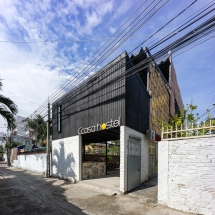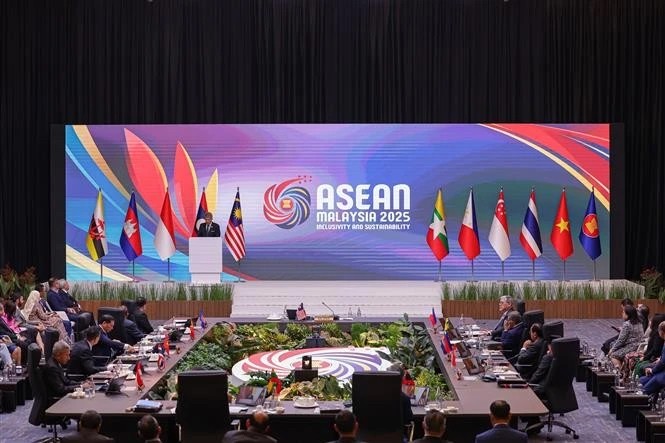Racoon spends over 30 days in shipping container from US to Vietnam
| First container train links Russia and Vietnam | |
| First hostel built from recycled shipping containers pops up in Vietnam | |
| Hanoi's largest inland container depot kicked off |
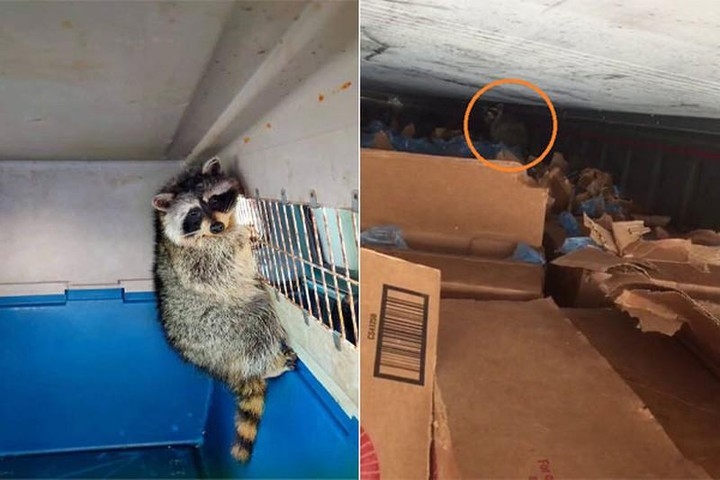 |
| The raccoon was discovered by when the container was opened in Ho Chi Minh, prompting a call to ENV. Photo: Internet |
Raccoons - native to North America and can be found throughout the United States - in the wild typically hunt and forage for their foods. They tend to prefer living near water sources where they can dine on raccoon delicacies like crayfish, frogs, fish, snails and clams. However, they’re also happy to eat eggs, insects, nuts, fruits, vegetables and even the occasional dead animal. Raccoons are obviously not very picky eaters.
These animals also have a tendency to become opportunistic feeders, meaning if they find a readily available source of food, that’s their new favorite dish. This could be anything from the dog food to summer vegetable garden to fallen fruit or nuts. This could even include a garbage can with an unsecured lid.
Recently, Education for Nature Vietnam (ENV) received a hotline call from a food company in Ho Chi Minh City after a staff member was attacked by a racoon.
It was reported he jumped out of a container of pork ribs and that many other products had been affected.
The racoon snuck its way into a shipment of food before it left North America, then ate its way through most of the products during its journey to Vietnam.
The raccoon was discovered by employees in Vietnam, who called ENV to remove them.
When the container arrived at a Vietnam's warehouse, "Rocket" is still extremely healthy even though he has been through 35 days of non-stop transportation, the temperature in the container is always in the state of -18 degrees Celsius and lacks oxygen, local news reported.
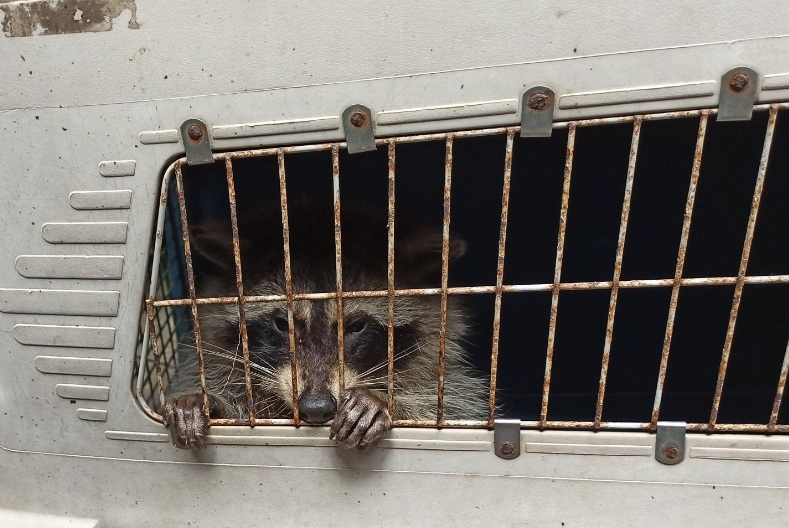 |
| Education for Nature Vietnam (ENV) arranged the safe transfer of the wild animal to a wildlife facility. Source: ENV |
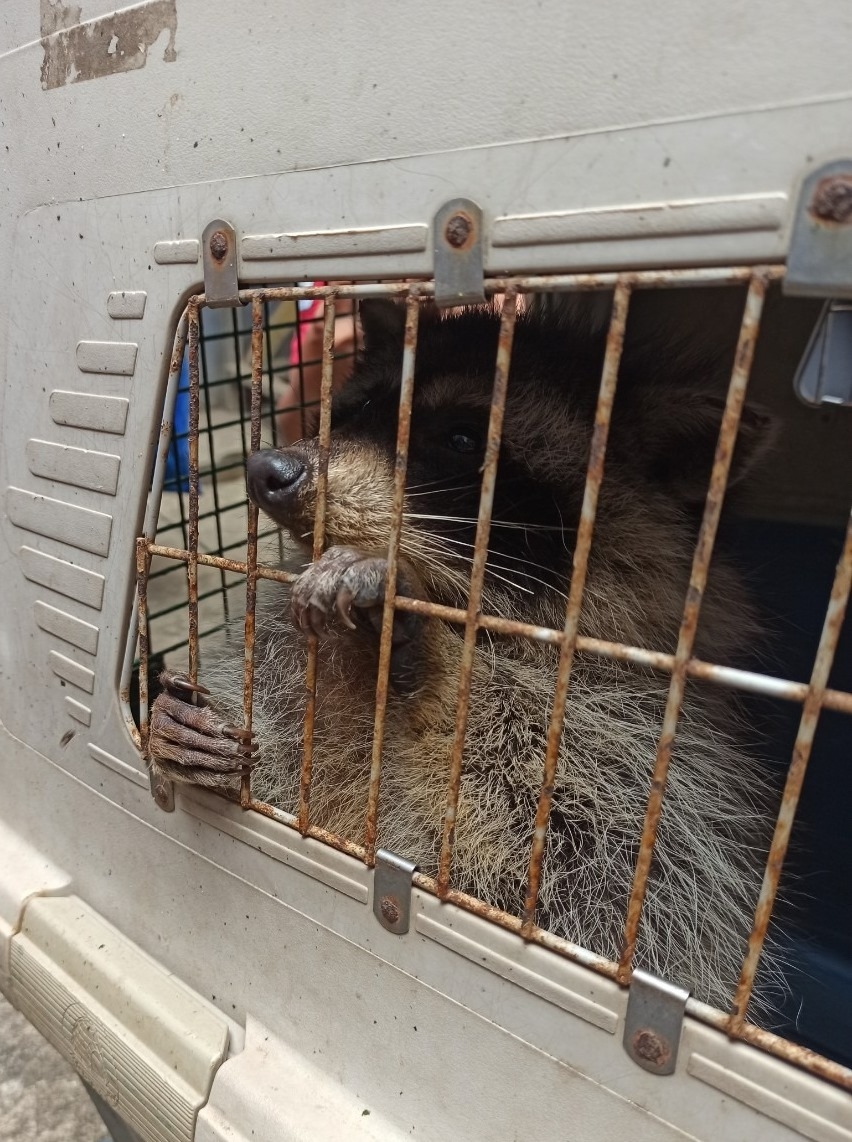 |
| He will have to remain at the wildlife facility as there are no racoon repatriate services. Source: ENV |
When employees in Vietnam opened the container, the raccoon was aggressive to say the least, said ENV.
Thankfully, they called ENV and their team was able to coordinate the safe transfer of the wild animal to a wildlife facility here in Vietnam.
Raccoons are not indigenous to Vietnam so he cannot be released to the wild here. He will have to remain at the wildlife facility as there are no racoon repatriate services, but at least he is safe from the wildlife trade.
Education for Nature Vietnam (ENV) was established in 2000 as Vietnam’s first non-governmental organization focused on the conservation of nature and the environment. ENV works to protect the environment by tackling the biggest threat to biodiversity: the illegal wildlife trade. Their mission is to end the illegal wildlife trade in Vietnam which is devastating ecosystems around the world and pushing the earth closer and closer to the sixth mass extinction.
Since ENV began the ENV Wildlife Crime Unit in 2005, more than 17,500 wildlife crimes have been reported to ENV./.
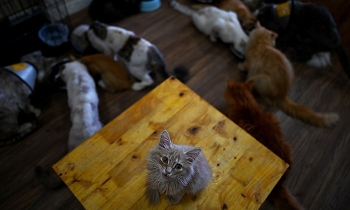 | International press highlights small rescue cat cafe in Hanoi A small rescue cat cafe in Hanoi has been covered by Agence France-Presse (AFP), French cooperative news agency, on one of its article released on occasion of the International ... |
 | Gia Lai becomes newest bear-farm-free province in Vietnam The last bear bile bear in Gia Lai province has been transferred to the Vietnam Bear Rescue Center in the northern province of Vinh Phuc, ... |
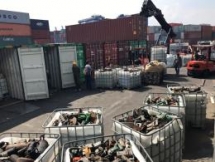 | Vietnam to return waste containers to their source countries: PM Prime Minister Nguyen Xuan Phuc stressed on October 15 that the Government will take more drastic actions to protect the environment, including returning imported containers ... |
Recommended
 World
World
Pakistan NCRC report explores emerging child rights issues
 World
World
"India has right to defend herself against terror," says German Foreign Minister, endorses Op Sindoor
 World
World
‘We stand with India’: Japan, UAE back New Delhi over its global outreach against terror
 World
World
'Action Was Entirely Justifiable': Former US NSA John Bolton Backs India's Right After Pahalgam Attack
Popular article
 World
World
US, China Conclude Trade Talks with Positive Outcome
 World
World
Nifty, Sensex jumped more than 2% in opening as India-Pakistan tensions ease
 World
World
Easing of US-China Tariffs: Markets React Positively, Experts Remain Cautious
 World
World

